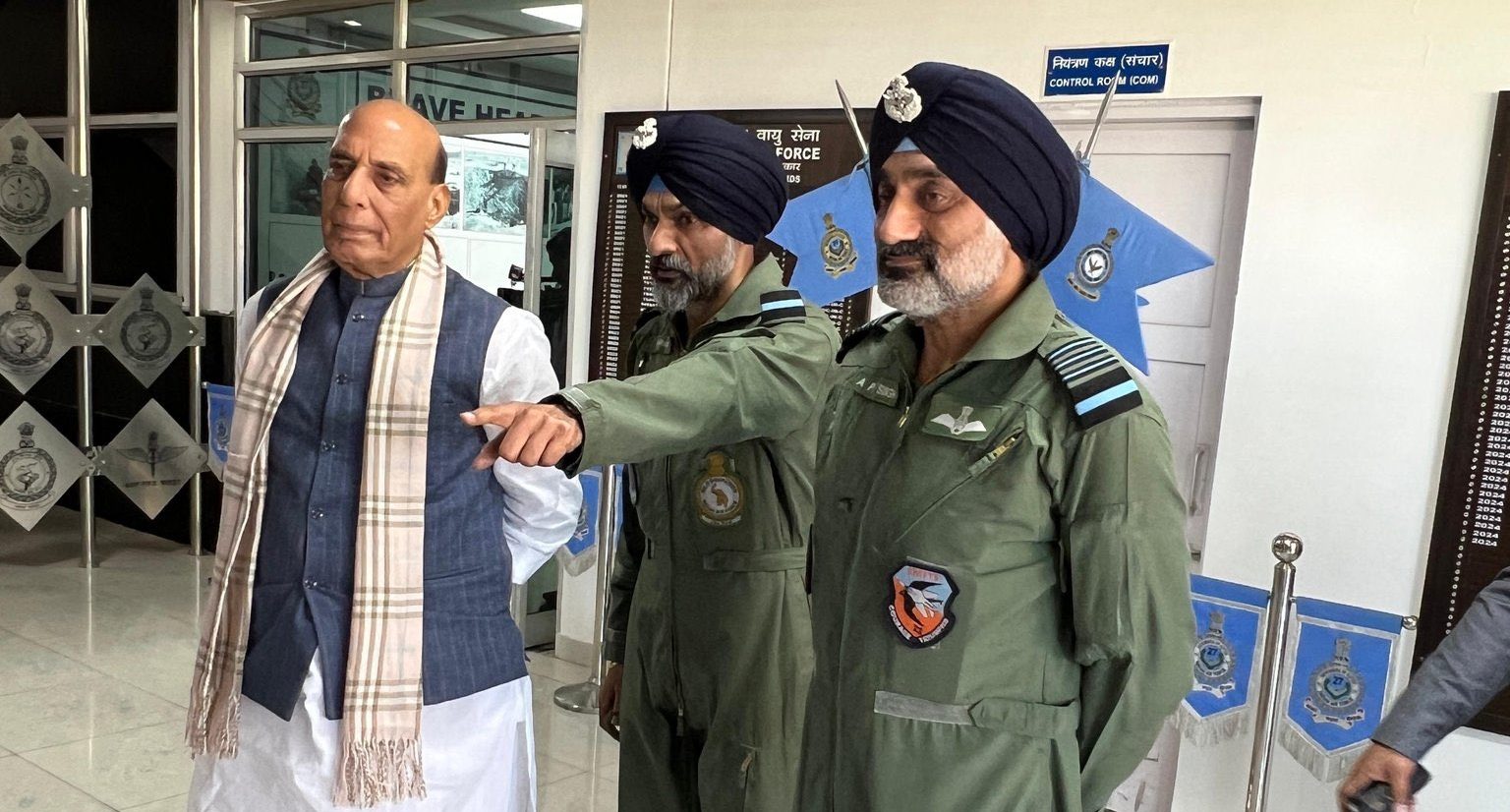Defence Minister Rajnath Singh visited the Air Force Station in Bhuj today to review the Indian Air Force’s successful execution of Operation Sindoor, a precision military campaign launched in response to the April 22 Pahalgam terrorist attack. The operation, carried out on May 7, 2025, targeted key terrorist infrastructure in Pakistan and Pakistan-occupied Kashmir (PoK), dismantling multiple Lashkar-e-Taiba and Jaish-e-Mohammed camps believed to be behind the deadly assault.
During his visit, Singh was briefed on the operational details of the mission, which involved the use of cutting-edge weapon systems including the BrahMos supersonic cruise missile and precision-guided munitions like HAMMER and SCALP. The airstrikes were reportedly executed within a span of just 23 minutes, showcasing the Indian Air Force’s enhanced strike capabilities, accuracy, and real-time coordination.
The Bhuj airbase, which falls under the South Western Air Command and is situated close to the India-Pakistan border, played a critical role in launching and supporting the mission. The base has remained on high alert in the days following the operation, especially after Pakistan attempted multiple drone incursions on the night of May 9-10. Indian forces successfully intercepted and neutralized the UAV threats, maintaining robust air defense postures.
Accompanied by senior IAF officials, Singh inspected the base’s preparedness and infrastructure. He lauded the air warriors for their commitment and skill, and reiterated the government’s zero-tolerance approach to terrorism. Emphasizing national security and accountability, Singh also expressed strong opposition to international financial assistance to Pakistan from institutions like the IMF, warning that such aid could be diverted toward terror funding—a concern he has raised in recent global forums.
The visit came days after a US-mediated ceasefire agreement was brokered between India and Pakistan on May 10, 2025. The truce, announced by US President Donald Trump, followed India’s retaliatory strikes that hit multiple Pakistani military installations, including airbases at Murid and Sargodha. These strikes damaged key infrastructure and grounded several Pakistani combat aircraft, including JF-17 Thunders and F-16 Fighting Falcons. The Indian air assault also disrupted drone operations at bases hosting Chinese and Turkish unmanned aerial vehicles.
Rajnath Singh’s two-day Gujarat tour includes an on-ground assessment of border security measures and inter-services coordination along the international border. The Bhuj airbase, which also functions as a dual-use runway with the civilian Bhuj Airport, continues to serve as a strategic surveillance and defense point on India’s western frontier.
Operation Sindoor has been widely hailed as a precise and effective counter-terror response, marking a significant moment in India’s evolving military doctrine. Analysts view the operation as a demonstration of India’s growing strategic confidence and a signal of deterrence against future cross-border terrorism.













